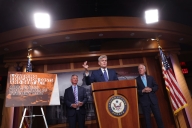You have /5 articles left.
Sign up for a free account or log in.
Information about indirect and nontuition college expenses is difficult to find, and these expenses are often the reason for financial hardship among students, according to a report from uAspire.
The report used data from more than 800 colleges and 150 students to understand the impact of costs like housing, transportation, food, laptops and other supplies. It argues that students need clear information about these potential costs while making decisions about college, but that is often hard to find.
“For many students, these additional costs far exceed the cost of tuition and fees, and they are unaware of them until they start classes,” Laura Keane, the report's lead author and uAspire's chief policy officer, said in a news release. “Even after maxing out federal student loans, students still face significant gaps to cover their true cost of attendance. Students pay their college bill first leaving them struggling to cover indirect expenses and make ends meet throughout the year. The financial burden on students has been growing since 2008 and will be compounded by the economic impacts of COVID-19.”
In a sample of 820 college websites, 39 percent did not include information on indirect expenses. Those that did used 58 different terms for indirect expenses.
Estimates didn't always add up, as well. The report found differences of $8,000 in indirect expense estimates from colleges that were only miles apart from each other. The lack of federal guidance on how to set the cost of attendance could be a reason for the inconsistencies in how colleges determine the estimates.
As a result, more than half of students reported paying more for indirect expenses than they anticipated, leading to many changing their food shopping or eating habits.
The report recommends several reforms to help students with this barrier, including increasing the funding of need-based aid, requiring transparency on this information, standardizing terms and definitions, and simplifying access to benefits.
Representative Ayanna Pressley, a Massachusetts Democrat, will host a briefing with uAspire on Thursday to present the report and recommendations.




